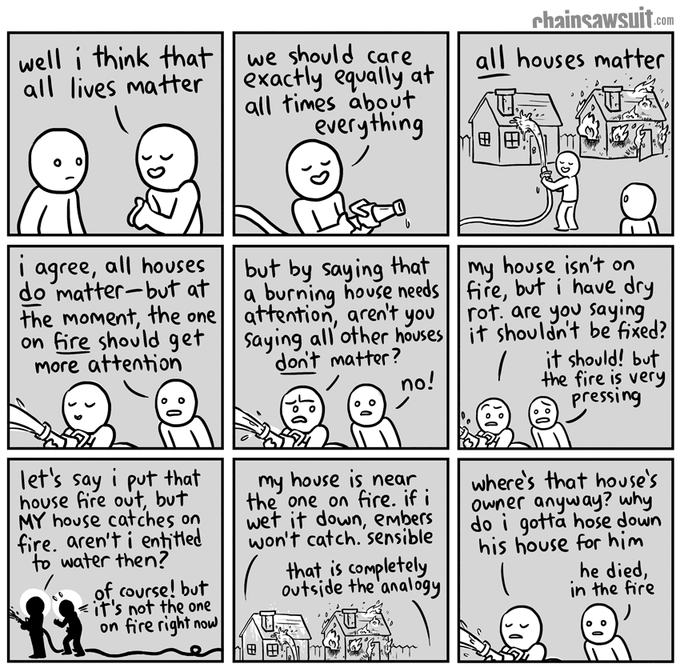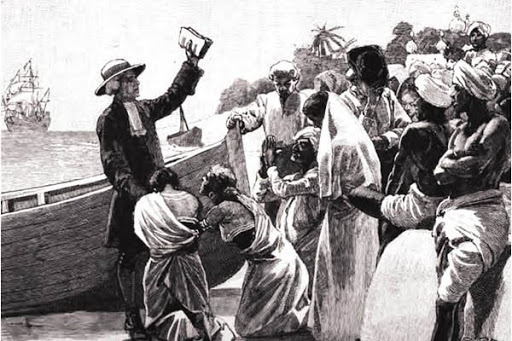

I spent much of my childhood blissfully unaffected by racism and unaware of what my ethnicity may have afforded me in unearned advantages over others. As such, I will always be in a position where I lack an important element of truth and I will always need to be open to changing my viewpoints and beliefs based on my learning from the experiences of others. Therefore whatever I do say in this blog, which for now I stand by, will be open to change based upon honest open discussion with people who have experience - something that for too long has been oppressed by the systemic racism that the Black Lives Matter movement has sought to expose.


Secondly I also want to acknowledge that the issues raised by Black Lives Matters are complex. After following the news, listening to several webinars and having discussions with family and friends from BAME backgrounds, it is obvious there are a myriad of debates to have. Debates about identity, the language used to describe race and a long discussion to be had about who we venerate as a society. These debates are important, however they can be a distraction from what the underlying issue is - racial inequality and the racism (conscious or unconscious) that upholds it. This blog is going to be a short look at how the education system relates to this problem. This will be seen through two areas: the curriculum and leadership.

Curriculum debate - Does it reduce racial inequality or disenfranchise BAME students?
When Michael Gove imposed a range of education reforms in the early 2010's, one of the desired aims was to reduce inequality through a knowledge based curriculum. The problem was that in some subject areas there appeared to be a reduction in diversity. Some argued that the English curriculum became dominated by 'White, Deceased, male writers', whilst the history curriculum has been seen by others as whitewashed and in denial of some of the more sordid aspects of Britain's Imperial past. So how on Earth does this help reduce inequality? Well the argument, as far as I understand it, was that by having this curriculum students from BAME and other disadvantaged backgrounds would build their cultural capital and be more included in the 'narrative' of a collective 'British' identity (it should be noted that at this time 'British Values' was being introduced). By sharing and 'knowing more' in this cultural capital students would have greater access to the institutions of the UK and be able to succeed in them more easily. Essentially it would make everyone a little more 'British' and the social fabric of our country will be knitted together more deeply.
Now, do you agree with this argument?
Do you think the reforms fairly considered BAME groups?
Having a collective identity is important for social cohesion. However, doing this by denying the truth of our history and the diverse voices that have contributed to our society only upholds racial inequality. It propagates the Imperial fiction of the benevolent Christian white male civilising the noble savage. This disenfranchises BAME students by denying their own history and contributions made to our society. It also speaks to the young white students that BAME students are external and an 'other' that need to assimilate to British society rather than contribute to it.
 |
| The argument that colonisation provided civilizing benefits to the world is often used as a justification or excuse for the brutality of Empire. This philosophy still permeates much thought in the 21st century. |
Although some argue that within the current curriculum there is room to include these voices I do agree that there needs to be more explicit representation and a conscious 'decolonising' process. The curriculum should be made to empower all students, it should teach them that we are members of one community, which is enriched and improved by its diversity.
Leadership debate - Are there enough diverse voices?
Diversity in leadership is a benefit to us all. Matthew Syed's book 'Rebel Ideas' is a brilliant summary of the importance of having thinkers from different backgrounds contributing to strategic leadership and decision making. The argument is simple - if we have only a narrow range of thinkers in a leadership group we get a narrow range of answers. More diverse teams have a broader base of knowledge and have a greater ability to evaluate problems and create better solutions to them.

In education right now (as well as many other areas of our society) there is a lack of diversity in leadership. According to the latest figures published by the government in 2020, 92.9% of all headteachers and 89.7% of all deputy and assistant headteachers are White British. This compares to a 78.5% working age population. It is clear that White British is overrepresented and BAME groups are underrepresented in leadership positions.
So here lays a problem. If a key issue is the lack of diversity in the curriculum, how can we possibly redress this if we lack the diverse thinking required at a leadership level? I find it somewhat ironic that when we look at Gove's time at the Department of Education, with his special advisor Dominic Cummings, there was a crushing lack of diversity, and perhaps we should not be surprised that their reforms did not forsee or understand the consequences of the curriculum changes they instigated.
Do we currently have the diversity we so desperately need in our senior leadership, MAT leadership, or at the very top of our education system to make meaningful change?
Perhaps we can already see a positive move in that direction. We are starting to have the conversations, diversity into leadership programmes are also seeking to redress the imbalance. Through more CPD for current teachers and a greater focus in initial teacher training maybe a cultural shift can take place. Times are tough right now with the crisis of Covid-19, yet perhaps this is the moment for meaningful change to take place. Let's see what happens.
Ian Stonnell @DenbighCPD
Useful Links
No comments:
Post a Comment